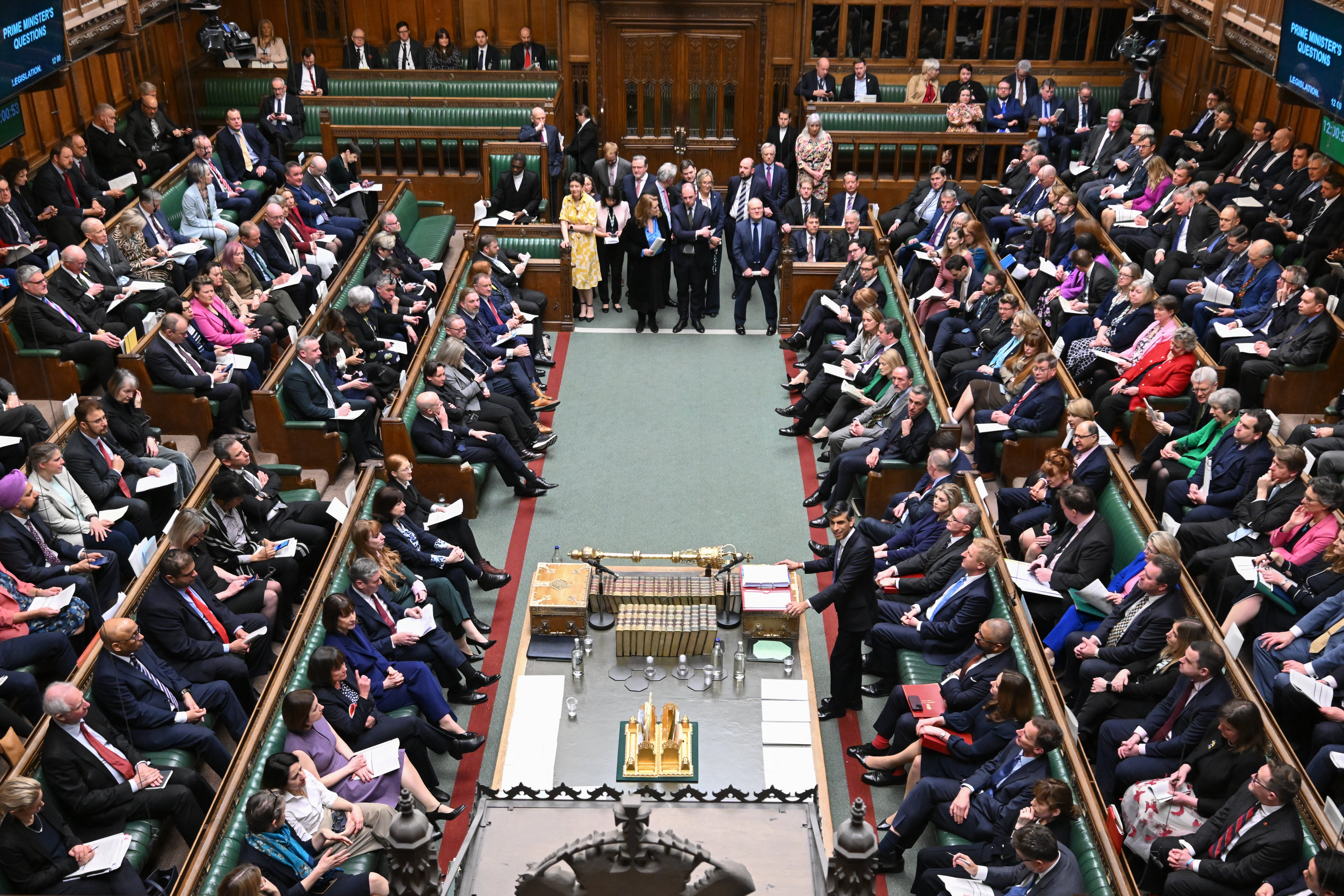Penny Mordaunt waters down plan to ban MPs arrested for sexual offences from Westminster
Unions have accused the leader of the house of ‘bottling’ a key proposal intended to keep parliamentary staff safe
Your support helps us to tell the story
From reproductive rights to climate change to Big Tech, The Independent is on the ground when the story is developing. Whether it's investigating the financials of Elon Musk's pro-Trump PAC or producing our latest documentary, 'The A Word', which shines a light on the American women fighting for reproductive rights, we know how important it is to parse out the facts from the messaging.
At such a critical moment in US history, we need reporters on the ground. Your donation allows us to keep sending journalists to speak to both sides of the story.
The Independent is trusted by Americans across the entire political spectrum. And unlike many other quality news outlets, we choose not to lock Americans out of our reporting and analysis with paywalls. We believe quality journalism should be available to everyone, paid for by those who can afford it.
Your support makes all the difference.Commons leader Penny Mordaunt has sparked anger after watering down a long-awaited proposal for MPs to be excluded from the parliamentary estate after being arrested on suspicion of a sexual offence.
The original motion – which would have seen the mandatory exclusion of MPs arrested for sexual or violent offences – was drawn up following a parliamentary report which recommended such members be forced to stay away from the estate for the safety of staff and other members.
However, it is understood that new watered-down proposals will mean members will only be excluded once they have been formally charged by police, despite opposition from senior Tories including Sir Christopher Chope and Sir Edward Leigh.
Unions have accused the leader of the house and MPs who form the Commons commission - the supervisory body responsible for the administration of the House - of reneging on their plans, claiming Ms Mourdant has “bottled” the vote following opposition from members.
Mike Clancy, general secretary of Prospect trade union, which represents workers in parliament, said the reports were a “massive retrograde step”.
“The commission and the leader of the house have bottled it,” he said. “We have repeatedly warned that every delay to implementing exclusion on arrest increased the likelihood of the proposals being watered down. We have, sadly, been proven correct.”

He added: “It beggars belief that this measure to protect women and men on the estate has now been withdrawn. Workers in parliament deserve to feel safe from credibly accused predators in their place of work.
“This would not be tolerated in any other workplace – it is to our shame that it is tolerated in the heart of our nation’s democracy.”
The unions had previously advised the commission - which includes key figures such as Ms Mordaunt and the speaker Sir Lindsay Hoyle - that parliament should have the ability to “exclude from its premises any person whom it reasonably believes might pose a risk to its employees and other users of the premises” and that the decision should be taken at the point of arrest.
In a letter to the commission, they argued: “We believe that if it’s reasonable for the police to arrest an individual on suspicion of a violent or sexual violence, it is equally reasonable – and indeed entirely appropriate – that the House Service should have the ability to conduct a risk assessment to determine whether it is safe for that person to access the estate.”
The decision to make the threshold for exclusion higher than previously proposed is likely to spark anger from staff and members who have voiced concerns that the current rules mean there is no formal mechanism to stop members accused of serious sexual misconduct from coming onto the estate.
In 2021, former Conservative MP Imran Khan was reported to have been on the parliamentary estate despite being charged with the sexual assault of a 15-year-old boy. Mr Khan was later found guilty and jailed for eighteen months.
When introducing their original proposals, the commission acknowledged that while a number of MPs subject to investigation in the past had agreed to stay away from parliament during a police inquiry, some had returned to the estate.
Ms Mordaunt’s team have been approached for comment.